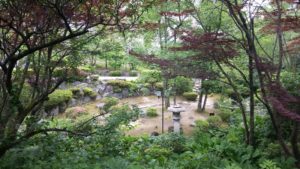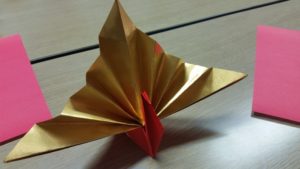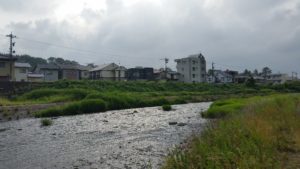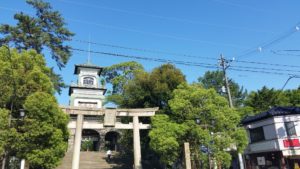With more time in Japan, confidence has grown. While it has taken time, I feel as though my ability to express ideas is not as limited as when I began. While this sounds like a natural consequence of prolonged language immersion in a foreign country, it is nevertheless something for me to personally reflect on. In my first entry, I discussed the need for creativity in conversation; expedient ways of conveying meaning are important at a lower level of language proficiency. As I have spent more time with native speakers, I find this creativity is very much tested. I have engaged (or been engaged by) teachers, host families, neighbors, local students, and so on. In each encounter, the desire to approach complex topics has proven to be attainable but occasionally slow and awkward.

For example, discussing the U.S. and its politics is a challenging activity no matter how “creative” I am with noun modifiers or liberal interpretation of verbs usage. At some point, complicated vocabulary becomes essential (grammer is more or less a non-issue). In Japanese, senkyou is now a fixed entry in my mental dictionary. Senkyou translates as “election.” Talking politics in Japan right now necessitates this word; of course, the U.S. presidential election is in November, but Japanese national elections are in July.
When talking with my hostfamily about the upcoming U.S. election, I mentioned that I would be able to vote in November. Then when prompted on who I supported, I said that I lean toward Sanders. Of course, by this time it’s known that Trump and Clinton are the respective nominees. It’s a difficult election, I tell him.
Both my hostparents were more or less unspoken on who they supported for the U.S. But, there was one topic of which they were certainly vocal, and that is Trump’s statements regarding foreign policy. Part of Trump’s policy involves a withdrawal of U.S. military presence from Japan, a move that might be viewed as more supportable if Japan’s self-defense was not restricted–by the constitution established with U.S. oversight after WWII. As my hostparents relate, the policy presented by Trump is a difficult one for Japan, should it ever be realized. However, currently the Japanese government is considering changes to the constitution, so that such a decision from the U.S. would be less of an impact on state security.

The nature of the U.S. electoral system also came up for discussion. Since I support Sanders, my hosfather assumed I had voted for him in the primaries. When I said I had not, he was initially (understandably) perplexed. It was problematic to explain 1) that I’m Independent and 2) that being Independent means (in most states) no vote until November. The idea that an individual cannot take part in decisive elections because of party lines was apparently very foreign. Thus, I was educated in Japanese senkyou. In Japan, anyone of voting age (18, as in the States) can take part in all elections; there are no party divisions, and no systems like those in the U.S. (such as caucuses, primaries, delegates, superdelegates). Of note is that Japan has a number of political parties, similar to systems as in the U.K.

What discussions like that described above have revealed to me is that vocabulary is becoming more and more important in the immersion process. While initially, a limited vocabulary can suffice for introductions, directions, and general living, real important interactions necessitate an ever expanding vocabulary. And thus, when creativity meets the end of its sphere. Vocabulary acquisition is definitely a challenge, especially given all the words that are a part of everyday life but not in a textbook. Add in slang and regional dialects, and speaking the language becomes quite easy compared to listening to native speakers. As the weeks continue, in order to get the most out this immersive opportunity, I will need to focus on out-of-class encounters.
“Challenge” is a word my hostfather says often (in English), and I find myself echoing the sentiment. My weaknesses are known; now I must target them. If, in the future, I want to talk about Japanese security, or climate change, or food imports, then I must continue to push my boundaries. This weekend I will be discussing the Shinto religion with the head priest of a jinja (Shinto shrine), an opportunity that I am very excited for but also anxious. It will be a test of my listening, without a doubt. However, the chance to delve further into something that has been a part of Japanese culture for centuries is invaluable. I cannot wait to report the conversation.
Alright, until next time.
Joshua Kuiper
カイパー
